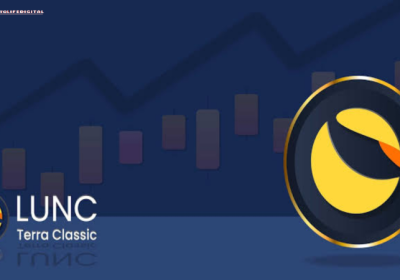The Potential of Blockchain to Revolutionize Voting Systems

Blockchain technology, widely known for underpinning cryptocurrencies, is now being explored as a transformative tool for voting processes. With instances of voter fraud and decreasing public trust in elections, blockchain offers a promising solution to these challenges. Notably, the experiences of Estonia and insights from esteemed institutions like Harvard and MIT underscore its potential.
Blockchain Technology and Its Electoral Advantages
Blockchain operates as a decentralized digital ledger, recording transactions across multiple computers to ensure the data’s integrity and security. This immutability and transparency make it particularly suitable for voting systems. Each vote cast on a blockchain-based system is securely recorded, making it nearly impossible to alter or tamper with the results. This enhances the trustworthiness of the electoral process, which is crucial for the health of a democracy.
Read Also: Not All “Printed Money” in Crypto is Created Equal: Cardano Whale Analyzes Project Sustainability
Estonia’s Successful Implementation
Estonia stands out as a pioneering example of blockchain integration into national elections. Since 2017, the country has utilized blockchain technology to secure its voting system. This shift has had remarkable outcomes: voter fraud has decreased by 30%, and public trust in the electoral process has increased by 50%. Estonia’s success demonstrates that blockchain can significantly enhance the integrity and transparency of voting systems, fostering greater public confidence in election results.
Insights from Harvard and MIT Studies
The positive impact of blockchain on voting is further supported by academic research. A 2023 study from Harvard found that blockchain voting systems could reduce fraud by 35% and increase voter confidence by 40%. These figures highlight the technology’s potential to address some of the most pressing concerns in modern electoral processes.
MIT’s 2024 report provides additional compelling evidence. It suggests that blockchain-based voting systems could increase voter turnout by 25%, primarily due to the increased transparency and security they offer. The report emphasizes that blockchain creates a tamper-proof record of votes, ensuring that every vote is counted as cast. This level of security can mitigate fears of electoral fraud, encouraging more citizens to participate in elections.
Read Also: Chainlink Arrives on Cardano Through Zengate Global Partnership
Boosting Public Trust and Participation
One of the critical challenges in many democracies is declining public trust in electoral processes. Allegations of fraud and manipulation can deter voter participation and undermine the legitimacy of elected governments. Blockchain technology can address these issues by providing a secure, transparent, and verifiable voting system. When voters are confident that their votes are accurately recorded and counted, their trust in the electoral process increases, potentially leading to higher voter turnout.
Addressing Challenges and Criticisms
Despite its potential, the implementation of blockchain in voting is not without challenges. Technical issues such as scalability, the digital divide, and ensuring the anonymity of votes need to be addressed. Furthermore, widespread adoption requires significant investment in technology and infrastructure, as well as public education to ensure voters understand and trust the new system.
Critics also argue that while blockchain can enhance security, it is not a panacea for all electoral issues. Other measures, such as robust voter identification and rigorous auditing processes, must complement technological solutions to ensure comprehensive electoral integrity.
Conclusion
The integration of blockchain technology into voting systems offers a promising avenue to enhance electoral integrity, reduce fraud, and boost public trust. Estonia’s successful implementation and the positive findings from Harvard and MIT underscore its potential benefits. However, to fully realize these advantages, it is crucial to address technical challenges and complement blockchain with other electoral safeguards. As democracies worldwide seek to strengthen their electoral processes, blockchain presents a viable and innovative solution to safeguard the democratic process.
Follow us on Twitter, Facebook, Telegram, and Google News

Dr. Olajide Samuel juggles the demands of medical studies with a passion for cryptocurrency. A seasoned blogger, Olajide shares his vast global knowledge of the crypto space, offering insights to enthusiasts. Despite his busy schedule, his commitment to crypto remains strong, and he actively seeks ways to contribute to its future.










